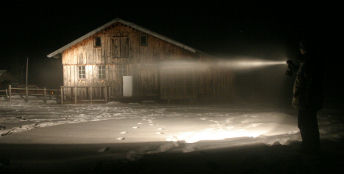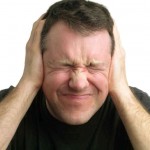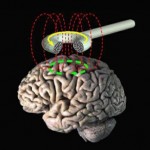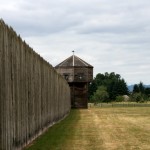
Previously on this blog, I was really teed off by Laurence Krauss contemptuous comments about philosophy at the American Atheists National Conventions (and I agreed with one of the big critiques of his book). It looks like he’s been catching flack for the anti-philosophy comments, and he’s written an essay in Scientific American to clarify his position. I’m excerpting below the parts I found most relevant, but you guys should check out the whole piece.
[In physics], I, and most of the colleagues with whom I have discussed this matter, have found that philosophical speculations about physics and the nature of science are not particularly useful, and have had little or no impact upon progress in my field. Even in several areas associated with what one can rightfully call the philosophy of science I have found the reflections of physicists to be more useful. For example, on the nature of science and the scientific method, I have found the insights offered by scientists who have chosen to write concretely about their experience and reflections, from Jacob Bronowski, to Richard Feynman, to Francis Crick, to Werner Heisenberg, Albert Einstein, and Sir James Jeans, to have provided me with a better practical guide than the work of even the most significant philosophical writers of whom I am aware, such as Karl Popper and Thomas Kuhn. I admit that this could primarily reflect of my own philosophical limitations, but I suspect this experience is more common than not among my scientific colleagues.
…So, to those philosophers I may have unjustly offended by seemingly blanket statements about the field, I apologize. I value your intelligent conversation and the insights of anyone who thinks carefully about our universe and who is willing to guide their thinking based on the evidence of reality. To those who wish to impose their definition of reality abstractly, independent of emerging empirical knowledge and the changing questions that go with it, and call that either philosophy or theology, I would say this: Please go on talking to each other, and let the rest of us get on with the goal of learning more about nature.
In between the two paragraphs I quoted, where I stuck an ellipses, Krauss expands on two places he sees physicists and philosophers coming into conflict: the measurement problem in quantum physics and the precise definition of nothing in “How did the universe come from nothing?” Which I guess is all I needed to know we still don’t see eye-to-eye.
The examples he gives really don’t seem like the most interesting or urgent points where physics and philosophy overlap. Here are a couple questions that I’m more interested in:
- When do scientists have a responsibility to conceal what they learn? Should Einstein and Oppenheimer have lied to politicians about the possibility of building an atomic bomb?
- How do we decide what physical augments and modifications are acceptable? Is it possible to push ourselves out of the category of ‘human?’ Do we care? Is there anything special about homo sapiens sapiens that would cause us to value continuity with our biological past more than we value continuity with homo erectus?
Krauss is correct that philosophy touches on how we weight and categorize data, but it also has a lot to do with what the data moves us to do once we’ve finished evaluating it. And those are the questions that tend to get a lot fuzzier than the conflicting hypotheses we can settle with beautiful proofs (or computer programs that iterate over the entire space of possible inputs, which get the job done, but leave a lot of us feeling a little dirty somehow).
If you’re a science geek (and Krauss is a lot cooler than me on that score) it’s easy to get frustrated by the bigger error bars you need to throw on your philosophical opinions. But that doesn’t excuse us from having to grub around for answers. We can’t circumscribe philosophical inquiry to the areas where we’re already good at getting results, because we’re still going to have to act based on answers we turn up in the shakier-feeling parts of our exploration of the world.











